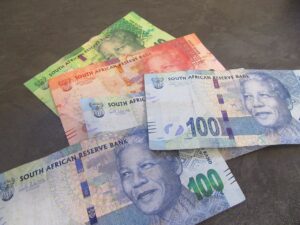
The rand has been extremely volatile this year, reaching its weakest level to date against the dollar amid increased political risk, weak economic growth and various local factors.
“In the past year, it has been seen anew how particularly volatile our currency is. The rand has also underperformed against other emerging market currencies and remains significantly undervalued and vulnerable to event risks,” says Thys van Zyl, CEO of Everest Wealth.
The past year’s news events have once again highlighted how vulnerable the rand is to international and local instability. Several public mishaps by the government, the ongoing load shedding, the country’s greylisting and uncertainty about economic and political policy have resulted in the rand not yet being able to catch a break this year.
“Political and economic uncertainty has had a major influence on the rand in the past 10 years. South Africa is also becoming less and less attractive as an investment destination with corruption and mismanagement making investors reluctant to invest in South Africa. Diplomatic missteps by the government and political instability are scaring off investors amid sluggish economic growth, largely due to load shedding and the country’s deteriorating transport network.”
The country’s trade balance is another of the catalysts influencing the rand. “A significant trade deficit can put pressure on a country’s currency. If a country imports more goods and services than exports, there is a greater demand for foreign currencies which leads to depreciation of the domestic currency. In the past ten years, South Africa has experienced trade deficits several times, which has put pressure on the rand. The current crisis at the country’s ports is a big risk for the country’s economy.”
According to Van Zyl, the government must get reforms in place to remove the country’s logistical limitations and power crisis so that the economy can grow. Meanwhile, the 2024 election also poses a risk due to the various scenarios that may result from its outcome.
In the meantime, the government must also tighten the belt in the midst of the country’s looming financial crisis. “The reality is that there is not enough money, there are too many expenses and that the government is going to have to cut back. The government continues unabated to borrow money with national debt that only continues to rise.”
If the government is serious about achieving any potential economic recovery, urgent action must be taken. “The government must get reforms in place to remove the country’s logistical limitations so that the economy can grow.”
Meanwhile, consumers are suffering due to government’s incompetence. The interest rate has been hiked ten times since November 2021 by a total of 4.75 percentage points.
“Consumers have had a hard time in the past year and a half and are struggling to keep their heads above water. Consumers are at wits’ end because of recent sharp increases in the interest rate as well as sharp increases in food prices, the price of petrol, power prices and other living costs.
“The weakness of the rand is due to bad decisions by the government and must therefore be left to him to correct. The interest rate should not simply be used to try to protect the rand’s value as political and economic instability bears the blame and ultimately consumers pay the price.”
